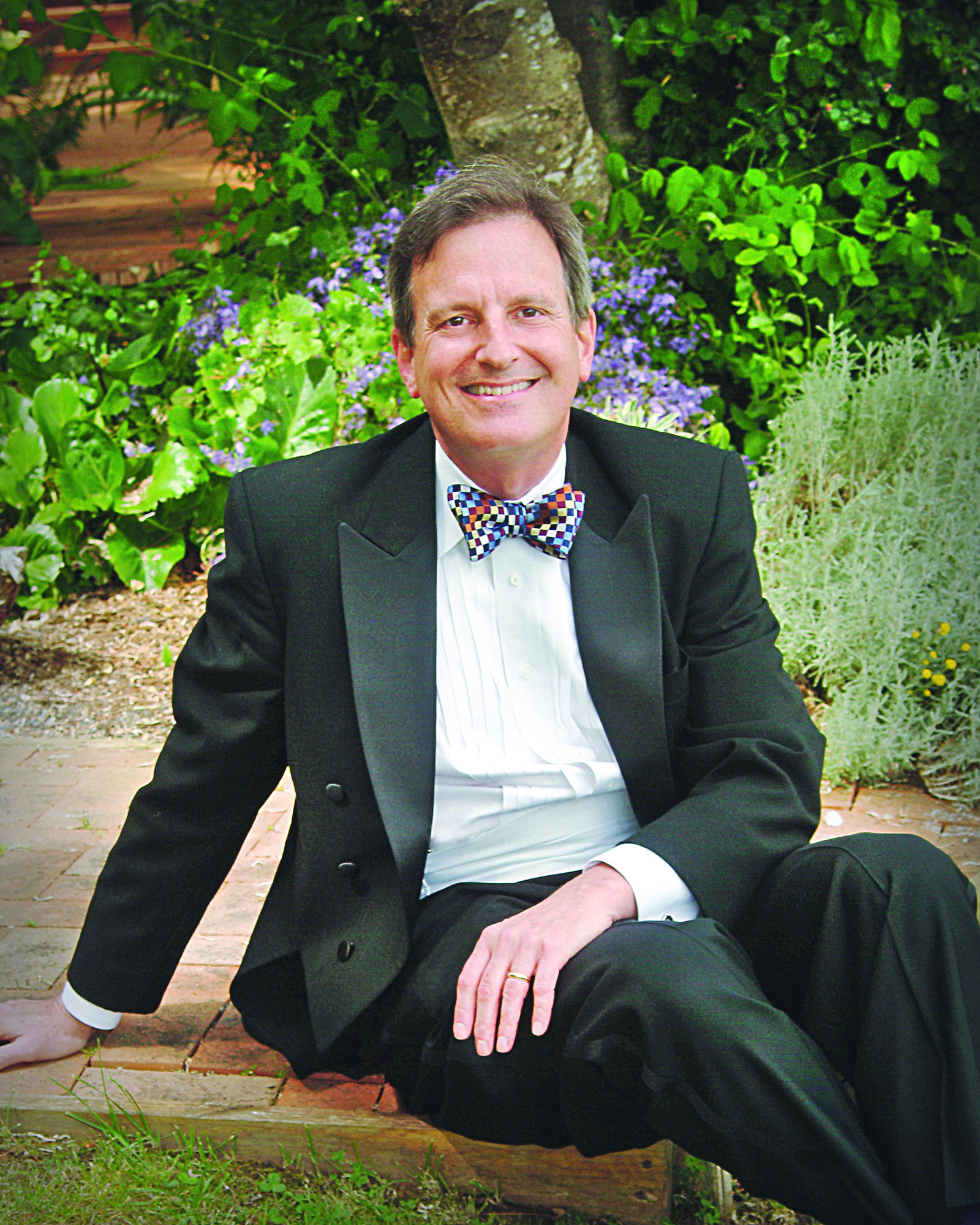EDITOR’S NOTE — Adam Stern, Grammy Award winner and former Port Angeles Symphony Orchestra music director and conductor, was the subject of a Sunday PDN article in which he talked about how his dismissal was handled by the symphony’s board of directors, and how the board’s withdrawal of a severance offer had caused financial challenges for him and his family.
Last Sunday’s (Aug. 31) article: “Maestro says Port Angeles ouster stirred personal money squeeze” — https://www.peninsuladailynews.com/article/20140831/NEWS/308319941
By ADAM STERN
A few points of clarification about Sunday’s story:
Regarding [symphony board Treasurer] Chuck Whitney’s statement that I have had jobs since my contract’s termination: this is true.
I guest-conducted the Seattle Symphony for some concerts in early July (Chuck and the board knew this, as I excitedly shared the news with them upon being engaged for these last spring).
Recently, I made some arrangements for the Orcas Island Chamber Music Festival; I also played a recital at a retirement home in Seattle a few weeks ago, and quickly composed a modest score for a local theater company’s production of Tom Stoppard’s “Arcadia.”
The income for all of these jobs combined was a fair amount less than the Port Angeles Symphony’s settlement offer, after taxes would have been taken out.
However, in terms of a permanent job to take the place of my Port Angeles Symphony income: except for one interview for a long-shot job that wouldn’t begin until October, I have had no offers, nor have I found any prospects — as I had predicted, based on a decades-long knowledge of the music profession.
Therefore, the Port Angeles Symphony’s offer “to continue payment for a period of time until the school year started and his other income would begin” would not have lasted much beyond where we are now.
(I might also add that I had to have some significant and costly automobile maintenance done a few months ago — do you suppose that the ca. 50,000 miles I have driven to and from Port Angeles since 2005 might have contributed to the necessity of the repairs?)
Chuck refers to the long talk he and I had about my relationships with members of the orchestra and board, and states that “the things that were discussed . . . were not heeded whatsoever.”
This is not the case.
The talk in question occurred on April 21, after the orchestra’s final subscription concert, so it would have been impossible to take up any of his suggestions about an even more relaxed working atmosphere with the full orchestra until I next worked with them again in September.
I was nothing but easygoing and upbeat during rehearsals for our final chamber orchestra concert in May.
Chuck also strongly suggested that I attend the symphony’s April 28 board meeting, so that I could offer my wishes to heal and strive for more openness in our dealings with each other in person, as opposed to doing so over a speaker phone.
This I duly did, making a special trip out just for the meeting.
I was not able to make the next executive committee meeting on May 8 due to a concert I was performing out-of-town; however, I emailed comments to be read into the record, which appeared in the minutes as follows:
“Adam wrote of his great satisfaction with the chamber concerts and the audience reaction of delight.
“He also asked that we all continue to serve PASO [Port Angeles Symphony Orchestra] with openness, civility and polite candor.”
In sum: I did indeed follow Chuck’s advice about attending the board meeting in April; I did take his advice regarding the workplace atmosphere when rehearsing with the roughly two dozen PASO musicians for our May “Homecoming” concert; I was fully prepared to go further than that upon returning to work in the fall.
To say that no suggestions were heeded is an inaccurate assessment of the facts.
Things change, don’t they?
In the book celebrating the Port Angeles Symphony’s 75th anniversary (Seventy-Five Years of Music on the Strait), Chuck observed of my first concert with the orchestra that he “had never heard the orchestra play so well and so spirited as they played the Gershwin [‘An American in Paris’],” and of my appointment as music director, he said:
“His superb conducting clearly sets him apart from so many others we considered that we’ll never look back on our decision.”
I guess “never” is a finite term after all.
When I was hired in 2005, one of my assignments was to raise the playing standard of the orchestra.
I was told that I would have the backing of the board to make the kinds of artistic calls that would achieve this; I was told by the orchestra members that, yes, they wanted to be pushed; they wanted the bar raised; they didn’t want to play only simple or Classical Top 40 repertoire; they wanted the challenge of improving.
If Chuck’s contention is that Port Angeles cannot possibly have a “world-class orchestra” due to the nonprofessional status of its members, why then does the Port Angeles Symphony refer to itself on its Facebook page as “a world-class community orchestra”?
Hyperbole, or a double standard?
I was not a perfect leader; no leader is.
Like most professional musicians, I placed the achievement of musical excellence above all else, and no doubt abrased some egos in the process.
But the consensus is that I left the orchestra in a stronger state than when I joined it, and of that I am proud.
The most unfortunate aspect of this saga is that, due to the (I am resisting the adjective “calculated”) timing of events, I was denied the courtesy of being able to say farewell to the orchestra and audience I served for nine years.
I do so now, sadly but gratefully.
________
This guest column appeared in the print edition of the Sept. 3, 2014, Peninsula Daily News.

